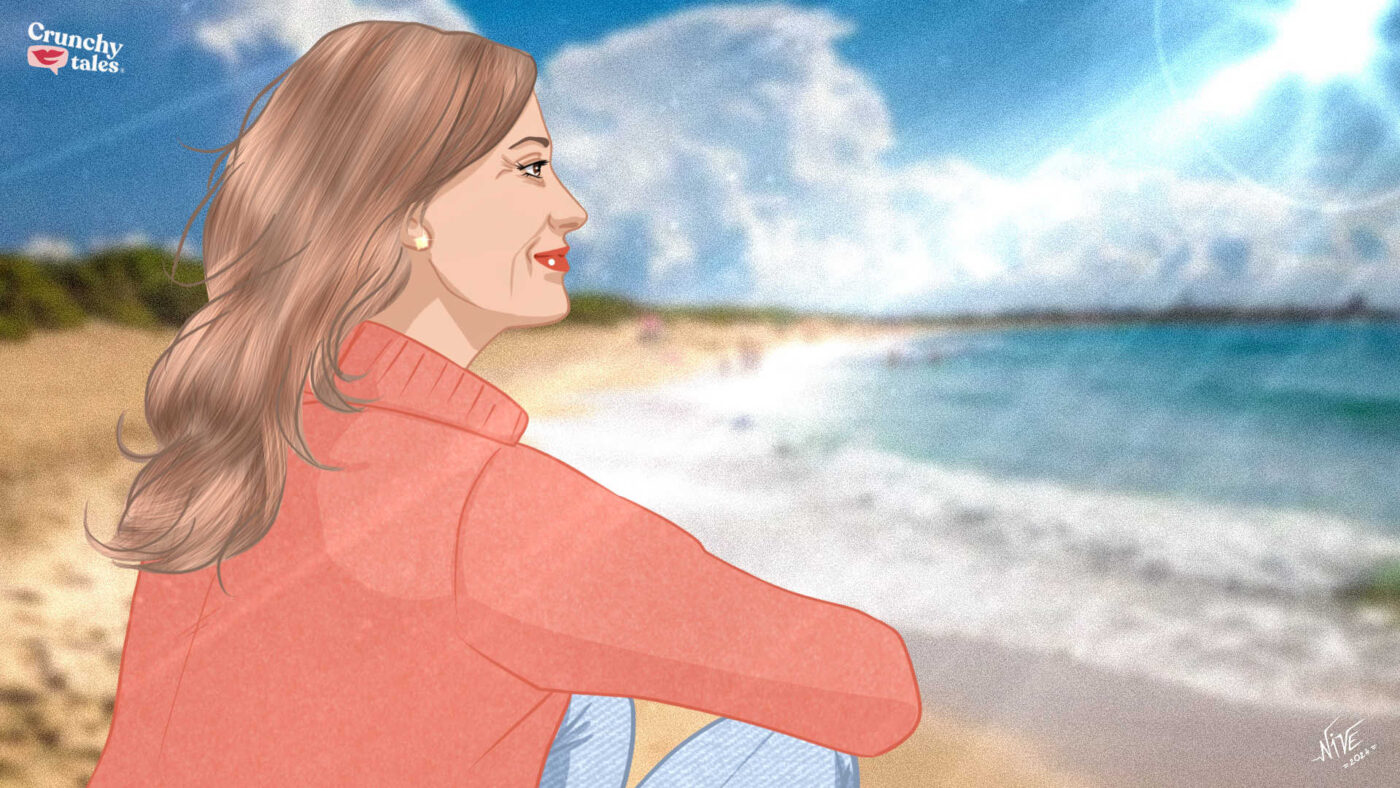Ageing Without Children: What Will Happen To Me?
Sitting alone in my garden, I often find myself contemplating the future. The thought of ageing without children—no one to visit, no grandchildren to dote on, and no familial safety net to catch me when I stumble—is a topic that fills many with dread.
In a society that often measures success and fulfilment by milestones like marriage and parenthood, those of us who age without children can sometimes feel like we’re navigating uncharted territory. The future can seem uncertain, and questions about who will care for us or how we will stay connected and engaged become ever more pressing.
Policymakers rarely consider the needs of childless older adults. Yet, their numbers are rising – the proportion of women remaining childless has doubled from one in nine to one in five within a generation. It’s estimated that by 2030, the number of childless adults over 65 will rise from over 1.2 million to 2 million. Certain groups, like older LGBTQ+ individuals and adults with learning disabilities, are especially vulnerable.
However, what we sometimes overlook is that even having children doesn’t guarantee their presence. Geographic distance and strained family relationships can further complicate matters. Additionally, financial constraints might make it impossible for adults to leave their jobs and become full-time caregivers, even if they desire to.
So, what will happen to us?
Ageing Without Children: The Uncharted Path
For those of us ageing without children, the future might be challenging but it is far from bleak.
It happens, that we are actually the pioneers of a new frontier: without the traditional roles of parent and grandparent, we have the freedom to redefine our later years in ways previous generations couldn’t imagine.
Here are some reasons tomorrow might be brighter than you think and some tips to consider to age well even without kids.
- Embrace the Freedom
One of the most compelling ideas author Ruby Warrington explores in her book “Women Without Kids” is the chance to invent our future on our own terms. Without the built-in social structure that kids often provide, we feel even more motivated to actively reframe our next chapter of life into anything but grey, filled with travel, hobbies, and lifelong learning.
“Foregoing motherhood has traditionally marked a woman as ‘other.’ With no official place setting for her in our society, she has hovered on the sidelines: the quirky girl, the neurotic career obsessive, the ‘eccentric’ aunt – Warrington writes -. Instead of continuing to paint women without kids as sad, self-obsessed, or somehow dysfunctional, what if we saw them as boldly forging a new vision for fully autonomous womankind? Or what if being a woman without kids was in fact its own kind of legacy? Whether we are childless by design or circumstance, we can live without regret, shame, or compromise“.
- Build Your Own Support Network
Ageing without children also offers a chance to build and nurture a strong support network, forming bonds with peers, neighbours, and even younger mentees that are just as meaningful as those within a traditional family structure and that can provide emotional companionship, and assistance when needed.
As a geriatrician, Dr Louise Aronson emphasizes in her book “Elderhood,” the value of intergenerational connections is key to ageing successfully. “We all need a village – she says-. Building relationships with people of all ages can provide emotional support, practical help, and a sense of belonging.”
Getting involved in local community activities can help, but we can also re-image our enlarged family thanks to the assistance of technology, which today plays a pivotal role in bridging gaps. Staying connected with loved ones through video calls, joining online groups with similar interests, or using apps to manage health and wellness are just a few examples of how we can leverage technology to enhance our quality of life.
Living in close proximity to others and downsizing in areas with robust social services also can make a huge difference for solo agers.
- Be Financially Independent
Without the financial burden of raising children, many of us can have the opportunity to invest more in our own futures and maybe alleviate some of the fears associated with ageing alone.
This can mean saving for our next adventure after retirement, investing in long-term care insurance, or even planning for home modifications to ensure we can age in place.
- Redefine Legacy
Without children, the concept of legacy can seem elusive, too. But legacy isn’t just about passing on genes; it’s about the impact we have on the world. Volunteering, mentoring, and contributing to community projects are powerful ways to leave a lasting mark.
In “The Next Happy: Let Go of the Life You Planned and Find a New Way Forward,” author, licensed marriage and family therapist in Southern California Tracey Cleantis suggests finding ways to make a difference that align with your passions. Whether it’s through your career, creative endeavours, or community involvement, there are countless ways to create a meaningful legacy as long as you’re prepared to let things go.
After multiple fertility treatments and years of hardship in her pursuit to have a child, Cleantis was forced to face this reality head-on. Yet, she discovered one simple truth: “Sometimes there comes a time when the smartest, healthiest, and sanest thing to do is to let go of the original plan in order to find a new way forward toward happiness. And with this critical shift, a world of possibilities opens up to us. New, tangible dreams take shape“.
Here’s when cultivating inner resilience comes in. It’s about accepting that life doesn’t always follow the expected script and finding joy and contentment in the path you are on.
“There’s a unique strength in those who navigate life’s challenges without the traditional supports,” says Warrington. “It’s a testament to our ability to adapt and thrive, no matter the circumstances.”
Ultimately, it’s about learning how to look after yourself. Mindfulness, meditation, and other practices that promote mental well-being can be incredibly beneficial but remember, in the end, it’s our inner child we should keep cultivating in order to build a life well lived.
- Plan for later life
Certified retirement coach Sara Zeff Geber, author of the book “Essential Retirement Planning for Solo Agers: A Retirement and Aging Roadmap for Single and Childless Adults” offers a practical yet humorous guide to ageing solo gracefully and achieving a happy retirement.
But of course, it’s not all lollipops and unicorns.
“As the years go by, those born between 1946 and 1964 get closer and closer to a time when health and vitality can no longer be taken for granted – she writes in Forbes-. Some are already there, but many more have their heads deep in the sands of denial. This is the scariest of all for solo agers. Without good planning and foresight, one cardiac incident, one moment of disorientation that leads to a fall, can lead to months or even years of being shuttled around from one unpleasant nursing home to the next, possibly even being rendered a ward of the court. No one wants that!“.
So, how can solo agers avoid this dramatic scenario?
Amongst her advice, it’s vital to discuss your wishes for later life with someone you trust. “Choose one or two people to be your advocates and fill them in on what they should do for you in a crisis“, she recommends and “find someone you trust and give them access to your documents (keys, passwords, location of records, name and contact information for your medical professionals and any family you’d like them to contact”.
- Prepare for your next chapter in life
Ultimately, ageing without children isn’t a deficit; it’s an opportunity to embrace endless possibilities but planning for later life is crucial.
Maybe the question isn’t “What will happen to me?” but rather, “What do I want to create for myself?“ With intention and optimism, we can all build a vibrant, connected, and joyful life, no matter what our family structure looks like.
What I’ve finally realised is that ageing without children is not a curse, but a canvas—a blank slate upon which we can paint our futures. Whether it will be bright or not, depends on us.
Like this post? Support Us or Sign up to our newsletter to get more articles like this delivered straight to your inbox!





